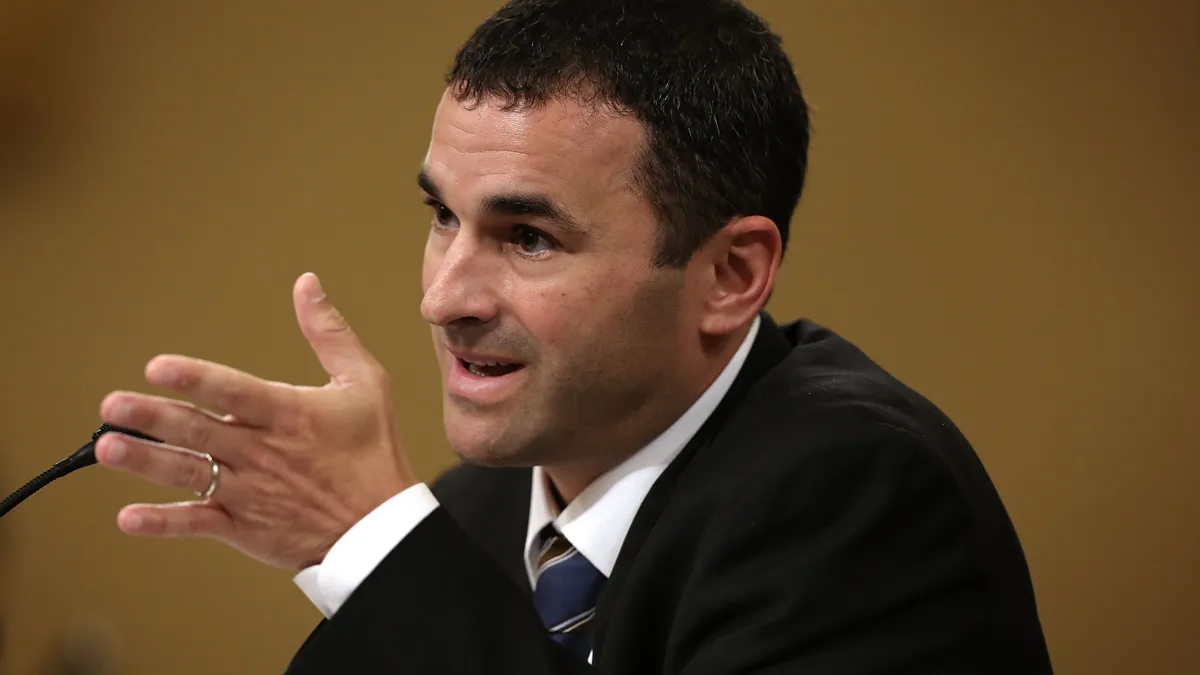Dive Brief:
- Internal Revenue Service Commissioner Daniel Werfel on Thursday defended the agency against Republican efforts to partially cut $80 billion in approved funding, making an “impassioned plea to make sure that we don’t harm taxpayers by making it harder for the IRS to help them.”
- From 2010 until 2022, Congress reduced the IRS budget by 25%, compelling the agency to retrench to 1970s staff levels as the number of taxpayers increased by the millions, global financial links expanded and the tax code grew more complex, Werfel said in testimony to the House Ways and Means Committee.
- “If you’re not pulling back the tax laws and the tax responsibilities, but you’re pulling back the ability for the IRS to serve taxpayers, then the ultimate harm is to the taxpayers themselves,” he said. “What it means when you describe ‘Let’s pull back the IRS funding’ — it means that the IRS won’t be able to function and help you.”
Dive Insight:
Republican lawmakers have pressed President Joe Biden to cut $20 billion from $80 billion approved in 2022 as part of a spending agreement planned for this year. That rescission would undercut tax revenues by more than $100 billion, the IRS and Treasury Department found in a study released on Feb. 6.
The IRS will use enforcement funds under the new outlay to collect $561 billion more in revenue than previously estimated by upgrading technology, streamlining services and intensifying efforts to make big corporations and wealthy taxpayers pay what they owe, according to the Treasury.
Biden has proposed more spending for the IRS for 2032 and 2033, after the original 10-year funding expires. With such a boost, the IRS would increase tax revenue by as much as $851 billion, according to the Treasury.
House Ways and Means Committee Chair Jason Smith, D-Mo., told Werfel that the panel wants to learn about “how the IRS is spending its windfall of $80 billion and fantasyland claims about how much revenue the agency thinks it will generate from increased audits.”
The IRS priority with the new funding is to identify tax evaders among large corporations, complex partnerships and wealthy individuals, Werfel said.
The agency is deploying new technology, using data analytics and artificial intelligence, and hiring accountants and auditors to track the money flowing through complex tax entities that extend beyond the U.S. and understate their U.S. profits, Werfel said.
“We’ve created this high-risk list of 1,600 of these individuals, and we started to get the money back,” he said. “So far, in the early stages of this effort, we have already collected half-a-billion dollars, and that’s just scratching the surface.”
A complex tax filing does not signal tax evasion, Werfel said in response to a lawmaker’s question.
“Here’s my understanding — that CFOs of major companies have a responsibility to their board and to their shareholders to find the most tax advantaged status,” he said. “Now I would love to go on the record and say I do not believe all of them are cheats, but I do get bothered when we see evidence of evasion.”
In 2022, before approval of the $80 billion in new funding, the IRS fielded just one auditor for every 150 of the wealthiest tax U.S. filers, including corporations, partnerships and individuals, he said.
“These tax returns are long and complicated — thousands of pages, sometimes hundreds of thousands of pages,” he said. “So I’d like people to picture one IRS examiner backing in 150 truckloads of paper, saying ‘I’ll review all that.’”












